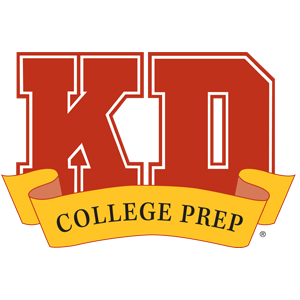The average reading speed can be around 200 words per minute.
The average writing speed can be around 200 words per hour. (Many famous authors write even more slowly than that).
College application essays are widely considered the hardest part of college applications because they’re so time-consuming. This is why it’s never too early to get started writing.
For the best results, set aside time to think deeply about the essay topic and how to stand out among other students who are writing to the same prompt.
Even if you only have 10 minutes to spare, it’s important to start brainstorming and dedicate time to writing your essay. Follow these tips to get started writing your college application essays right away.
When Should I Start Writing?
Like, yesterday.
Seriously, the Common App® topics are already available. This means that if you get started writing your application essay now, your essay will still be on point months later.
Ideally, you’ll write several drafts of each essay before you hit submit. Writing is not usually a quick process, since you ought to go through a number of stages while preparing your essays.
If you’re overwhelmed by the college admissions process and unsure of what to write, follow these steps to get started. Don’t think too hard about it. If you start early, you’ll be able to tweak and revise your essay until it’s a perfect piece.
Stages for Writing Your College Essays:
- Brainstorming
- Outlining
- Drafting
- Revision
- Editing
High school seniors with application deadlines as early as November 1 need to begin assembling the components of their college application in the summer before their senior year. This means you’ll want to start writing your college essays toward the end of your junior year of high school.
How Do I Allocate My Time?
Get organized and have a plan.
People who love lists and charts are going to love the college essay writing process. People who tend to procrastinate should follow these organization techniques to stay on task.
1. Create a spreadsheet
Whether it’s on notebook paper or Google Docs, the spreadsheet must happen. A spreadsheet will help you keep track of deadlines and where you left off in the process.
Look up the colleges you’re interested in and write down the deadlines for essays or paperwork submissions. Most of these dates will likely be in early January.
Organize the list in date order, starting with the first application deadline.
We also recommend adding a column called “Personal Deadline” that is set to at least two weeks before the essay is due, at the very latest. This will give you a little leeway in case something unexpected comes up. We recommend having your essays complete by September of 12th grade.
It should look something like this:
2. Schedule Personal Deadline Reminders
After you’ve started your spreadsheet, you need to schedule your personal deadlines.
Plug all of the deadlines, official and personal, into your phone’s calendar app (or if you like to go old school, write them in your planner). Set reminders for yourself so that your deadlines don’t slip off your radar.
Then–and this is key–treat your deadlines like they are important appointments like a job interview or homework assignment. Pretend that you can’t cancel, reschedule, or ignore these deadlines.
3. Make a Writing Checklist
If four colleges have the same or nearly the same essay prompt, work on these deadlines at the same time and roll into one overarching essay (if possible).
If two colleges have super early deadlines, you’ll need to bump those essays up to the top of your list.
Basically, your writing checklist details everything you have to write and when to have it done by. It’s a master list. If you like to color-code things, use that as a tool for keeping track.
Having a writing checklist makes it easy to stay organized and know exactly where you are in the grand scheme of college essay writing.
It also makes it easy to find your essays when you’re looking for them, and it ensures that you won’t forget about a deadline and have to compose an entire essay the night before it’s due.
4. Make Folders
A messy desk is supposedly a sign of genius, but people who lose things don’t look very smart.
If you like to draft on notebook paper, grab a binder with dividers or a 5-subject notebook with tabs labeled for each university.
If you like to draft on your laptop, save each document with a clear title (“Harvard Essay Option D Final Draft”) in a folder also named for the university.
Be sure to back up your files. Save yourself the heartbreak of losing hours of work because of technical difficulties.
5. Follow Up
Follow up with the college to make sure they’ve received all necessary documents and recommendations.
In addition, follow these tips to stay organized and on track:
- Follow up with your master list, updating it as needed.
- Follow up with your spreadsheet, noting your essay status.
- Follow up with the universities, researching what a great applicant looks like to them.
With some organization and plenty of lead time, writing college application essays will not be a rushed afterthought for you. You’ll be able to give the process plenty of time and focused attention in order to create your best essays.
Need help with your essays?
Our experienced college counseling team offers college essay assistance to help students write essays that capture the attention of admissions officers. Schedule a free consultation to get started.
































